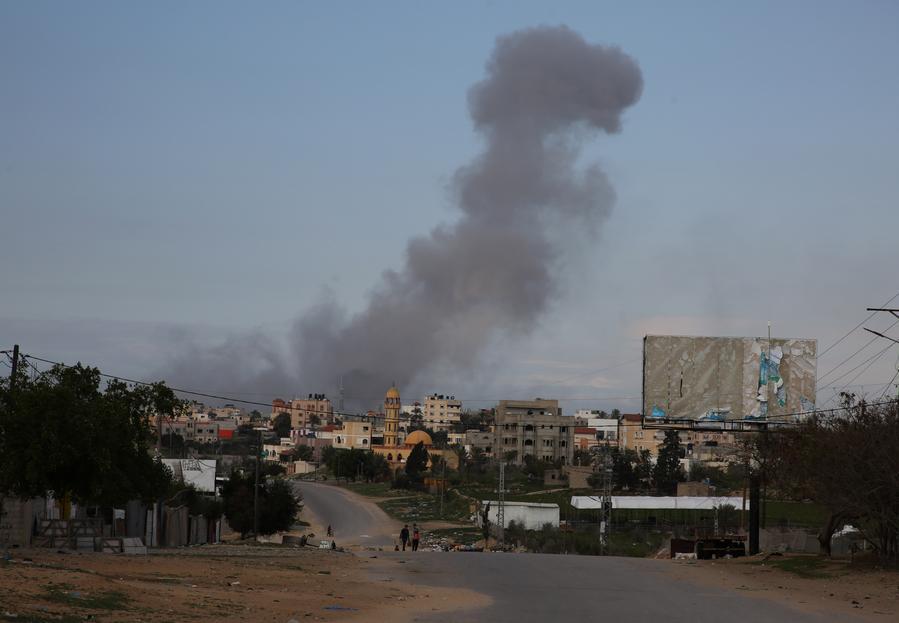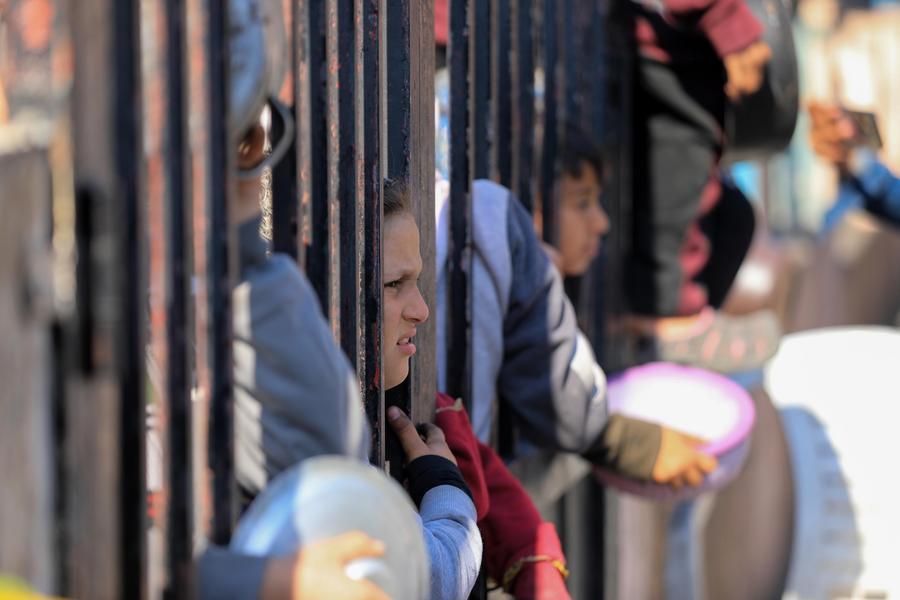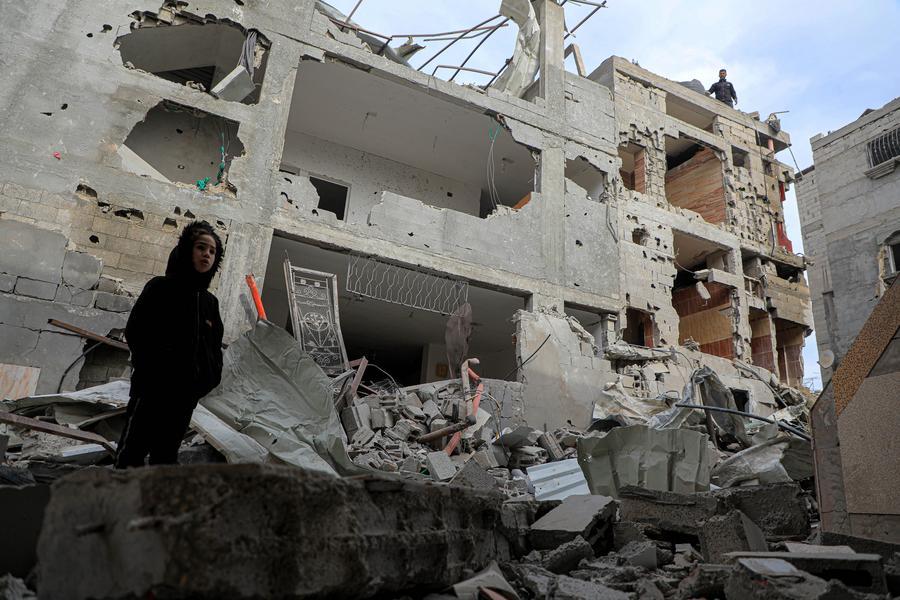
Smoke rises after Israeli bombings in the southern Gaza Strip city of Khan
Younis, on Feb. 14, 2024. The Palestinian death toll in the Gaza Strip has risen to 28,576 with 68,291 others wounded since the Israel-Hamas conflict broke out on Oct. 7, 2023, the Hamas-health ministry said in a press statement on Wednesday. (Photo by Khaled Omar/Xinhua)
Israel is facing mounting calls to agree to a truce in the Gaza Strip as its deadly conflict with Hamas has lasted for more than four months and claimed the lives of tens of thousands of Palestinians in Gaza as of Wednesday.
The calls came as Israel was indicating it was set to launch a ground operation in Rafah, Gaza's southernmost city, where about 1.4 million displaced Palestinians have sought refuge from the Israeli relentless bombardments in other parts of the coastal enclave.
On Wednesday, French President Emmanuel Macron spoke by telephone with Israeli Prime Minister Benjamin Netanyahu and told him France opposed an Israeli offensive in Rafah.
Macron said that such an attack "could only lead to a humanitarian disaster of a new magnitude," according to a readout released by the Elysee. It would "constitute violations of the international humanitarian law and would pose an additional risk of regional escalation," he said.
Palestinians wait for relief food supplies in the southern Gaza Strip city of Rafah, on Feb. 14, 2024. The World Health Organization (WHO) on Wednesday warned of an "unfathomable catastrophe" that the potential expansion of Israeli ground assault could cause in Rafah, a city in the southern Gaza Strip. (Photo by Yasser Qudih/Xinhua)
Defying the growing pressure, Netanyahu told Macron that Israel "will fight until a total victory and it includes a powerful operation in Rafah." He said that the army would allow civilians to flee the city before launching the attack.
German Foreign Minister Annalena Baerbock, who was on a visit to Israel, said in a post on X on Saturday that the distress in Rafah "is already unbelievable" and an army attack would be "a humanitarian catastrophe." The people who seek shelter in Rafah "cannot disappear into thin air," she wrote.
A meeting of Qatari, Egyptian, American, and Israeli negotiators in Cairo on Tuesday ended without a breakthrough, although media reports indicated that the talks were held in a constructive atmosphere.
Israel's state-owned Kan TV news reported that Egypt decided to extend the talks for three additional days to continue working out differences. However, Netanyahu did not approve the return of Mossad Chief David Barnea, who attended the talks on Tuesday, to Cairo.
Netanyahu downplayed the importance of a deal for releasing the hostages, emphasizing that "the key for the release of the remaining hostages: strong military pressure and assertive negotiation."
Overnight, the Israeli army bombed areas in Rafah and Khan Younis, the largest city in southern Gaza, the Israeli army said in a statement.
Hamas, a Palestinian armed group that runs Gaza, is demanding an end to the war in exchange for the release of hostages, while Israel agrees only to a time-limited ceasefire. Both sides are willing to include the release of Palestinian prisoners in the deal, but there is also disagreement over the number of prisoners to be released.
The military offensive launched by Israel following Hamas's attack has claimed the lives of 28,576 Palestinians in Gaza and wounded 68,291 others, according to the Gaza-based Health Ministry. About 1,200 people were killed by Hamas attacks on Oct. 7, 2023, according to official Israeli figures.
A Palestinian child checks the rubble of a building destroyed in an Israeli air strike in the southern Gaza Strip city of Rafah, on Feb. 12, 2024. (Photo by Rizek Abdeljawad/Xinhua)



